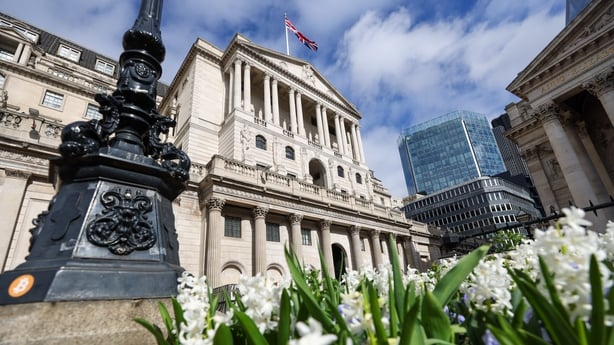British inflation returned to its 2% target in May for the first time in nearly three years, data showed today, but underlying price pressures remained strong, meaning the Bank of England is likely to wait longer before cutting interest rates.
While the fall in headline inflation in May will be welcomed by both Prime Minister Rishi Sunak and the Bank of England, it is likely to have come too late either to turn around Sunak's fortunes at next month's election or to prompt a Bank of England rate cut tomorrow.
The Office for National Statistics data showed services price inflation, which the Bank of England thinks gives a better picture of medium-term inflation risks, was 5.7%. That was down from 5.9% in April but not as big a drop as the 5.5% economists had forecast in a Reuters poll.
Sterling rose modestly against the US dollar and the euro after the data.
"Bank of England Governor Andrew Bailey is likely to be the happiest man in the Square Mile this morning," said Michael Brown, senior research strategist at currency brokers Pepperstone, but added the Bank of England was likely to wait until August before cutting rates.
The drop in annual consumer price inflation from April's 2.3% reading - in line with economists' expectations - took it to its lowest since July 2021 and marks a sharp decline from the 41-year high of 11.1% in October 2022.
The fall has been sharper than in the euro zone or the US, where consumer price inflation in May was 2.6% and 3.3% respectively, belying concerns a year ago that British inflation was proving unusually sticky.

Inflation first began to pick up in most Western economies in the second half of 2021 due to bottlenecks from the Covid-19 pandemic, then surged after Russia's full-scale invasion of Ukraine in February 2022 caused natural gas prices to soar.
Consumer prices in Britain are up around 20% over the past three years, squeezing living standards and contributing to the unpopularity of Sunak's Conservatives, who are around 20 points behind the opposition Labour Party in opinion polls.
Sunak said in a video clip that the drop in inflation since he took over from his Conservative predecessor Liz Truss - whose fiscal policy triggered a surge in government borrowing costs - was evidence that his economic policies were working.
"Let's not put all that progress at risk with Labour," he said.
Rachel Reeves, the Labour politician who looks set to be Britain's next finance minister after the July 4 election, said the Conservatives would bring "five more years of chaos".
The Bank of England has said a return of inflation to its target is not enough on its own for it to start cutting interest rates.
"Rate-setters will still need to weigh the fall in headline inflation against signs that domestic price pressures, such as elevated pay growth, are proving slower to come down," Martin Sartorius, principal economist at the Confederation of British Industry, said.
While most economists polled by Reuters think the central bank will start to cut rates from a 16-year high of 5.25% in August, financial markets think a first move is more likely in September or November and see less than a 10% chance of a cut this week.
The most recent fall in inflation was partly driven by a cut in regulated household energy bills in April - the effect of which will fade later in the year, when the Bank of England forecasts inflation will rise again.
Lower food prices were the biggest factor pushing down on inflation in May, reducing the annual rate of inflation for food and non-alcoholic drinks to 1.7% from a 45-year high of 19.2% in March 2023.

